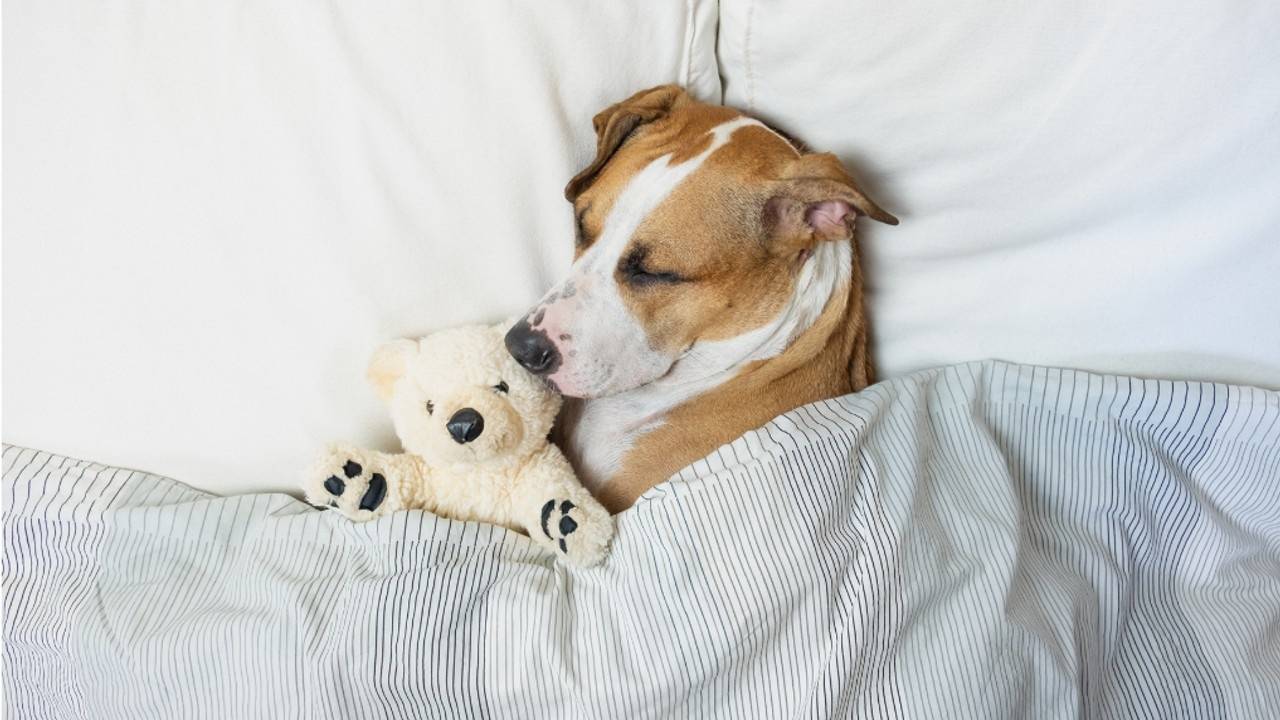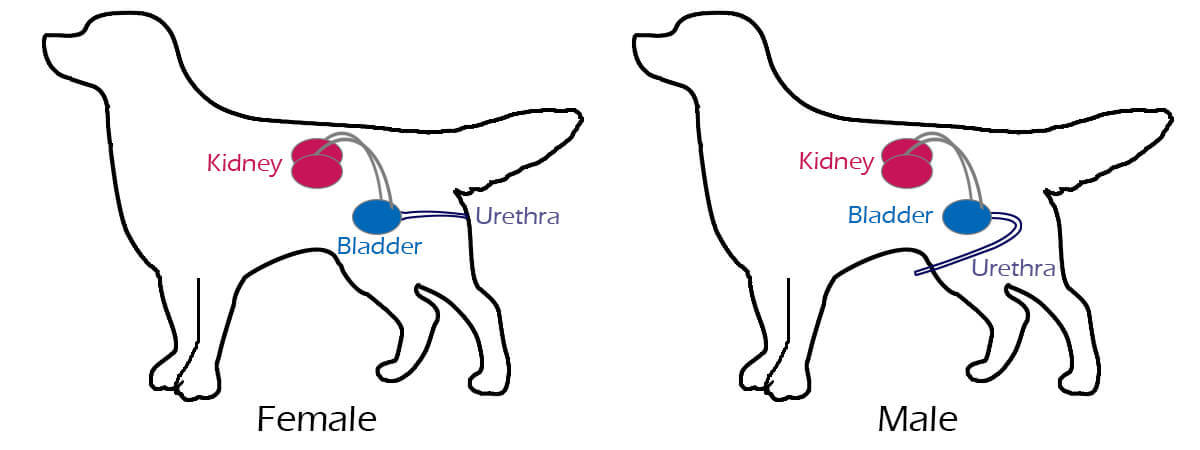How To Help My Senior Dog Sleep Through The Night

The gentle snores that once filled your nights have been replaced by the restless pacing, panting, and whining of your senior dog. Sleepless nights are becoming the norm, leaving both you and your aging companion exhausted and concerned. What was once a comforting presence is now a source of worry, and you're desperate for solutions.
This article will explore the common causes behind sleep disturbances in senior dogs and provide practical, vet-backed strategies to help them – and you – reclaim a full night's rest. We will delve into medical conditions, behavioral modifications, environmental adjustments, and dietary considerations, offering a comprehensive guide to addressing this challenging issue.
Understanding the Causes of Sleeplessness in Senior Dogs
Several factors can contribute to sleep disturbances in older dogs. According to the American Veterinary Medical Association, age-related cognitive decline, similar to dementia in humans, is a significant culprit.
This condition, often referred to as Canine Cognitive Dysfunction (CCD), can disrupt a dog's sleep-wake cycle, leading to nighttime restlessness and confusion. Dr. Sarah Miller, a veterinary neurologist, explains, "CCD can manifest in various ways, including disorientation, anxiety, and altered sleep patterns. Dogs with CCD may forget their house training or wander aimlessly at night."
Medical conditions also play a critical role. Arthritis and other forms of joint pain are common in senior dogs, making it difficult for them to get comfortable and stay asleep. Pain can intensify at night, disrupting their rest.
Other medical conditions such as kidney disease, heart disease, and urinary incontinence can also contribute to nighttime awakenings. Needing to urinate frequently or experiencing discomfort from organ dysfunction can interrupt sleep.
Changes in their environment or routine can also trigger sleeplessness. A new pet, a change in furniture arrangement, or even a shift in your work schedule can cause anxiety and disrupt their sleep patterns.
Creating a Comfortable Sleep Environment
Ensuring your senior dog has a comfortable and supportive sleep environment is crucial. Investing in a high-quality orthopedic dog bed can alleviate pressure on their joints and provide better support.
The bed should be placed in a quiet, draft-free area of the house where your dog feels safe and secure. Consider adding extra blankets for warmth and cushioning, especially during colder months.
Maintaining a consistent temperature in the bedroom can also improve sleep quality. Avoid extreme temperatures, as both overheating and feeling cold can disrupt sleep.
The Importance of Routine and Structure
Establishing a consistent daily routine can help regulate your dog's sleep-wake cycle. Veterinary behaviorist, Dr. Emily Carter, emphasizes the importance of predictability for senior dogs.
"A regular schedule for feeding, walks, and playtime can reduce anxiety and improve sleep quality. Try to stick to the same times each day, even on weekends," she advises.
A calming bedtime routine can also be beneficial. This might include a gentle massage, a short walk, or a quiet cuddle session.
Dietary Considerations and Exercise
Diet plays a vital role in your dog's overall health and can impact their sleep. Feeding your dog a high-quality diet appropriate for senior dogs can support their cognitive function and overall well-being.
Avoid feeding your dog a large meal right before bedtime, as this can lead to digestive discomfort and disrupt sleep. A small, easily digestible snack can be offered instead.
Regular exercise is essential for both physical and mental health, but avoid strenuous activity close to bedtime. A gentle walk or playtime session earlier in the day can help tire your dog out and promote better sleep.
Supplements and Medications
Certain supplements and medications can help improve sleep quality in senior dogs. Melatonin, a natural hormone that regulates sleep, is often recommended by veterinarians.
However, it's crucial to consult with your veterinarian before giving your dog any supplements or medications. They can assess your dog's individual needs and recommend the appropriate dosage and treatment plan.
In some cases, medications may be necessary to manage underlying medical conditions that are contributing to sleep disturbances. Pain relievers, anti-anxiety medications, and medications for CCD can all be helpful.
Addressing Canine Cognitive Dysfunction
If your veterinarian suspects CCD, there are several strategies you can implement to manage the condition. Mental stimulation is key to slowing the progression of CCD.
Provide your dog with interactive toys, puzzle feeders, and training sessions to keep their mind active. Even short bursts of mental exercise can be beneficial.
Maintain a familiar environment and avoid making significant changes to your home or routine. This can help reduce confusion and anxiety.
Medications such as selegiline (Anipryl) can help improve cognitive function in dogs with CCD. Dr. David Anderson, a specialist in geriatric veterinary care, notes, "Selegiline can help improve cognitive function and sleep quality in some dogs with CCD, but it's not a cure. It's important to combine medication with environmental enrichment and behavioral management."
When to Consult Your Veterinarian
It's essential to consult with your veterinarian if your senior dog is experiencing persistent sleep disturbances. They can conduct a thorough physical examination, run diagnostic tests, and develop a customized treatment plan.
Don't hesitate to seek veterinary advice, as early intervention can often improve the prognosis and quality of life for your senior dog.
Be prepared to provide your veterinarian with detailed information about your dog's sleep patterns, behavior, and any other relevant symptoms. This will help them accurately diagnose the underlying cause of the problem.
Ultimately, understanding the underlying causes of your senior dog's sleeplessness is the first step towards finding effective solutions.
By creating a comfortable sleep environment, establishing a consistent routine, addressing medical conditions, and providing mental stimulation, you can help your senior dog – and yourself – enjoy more restful nights. Remember that patience and persistence are key, and with the right approach, you can improve your beloved companion's quality of life in their golden years. The road may be long, but the rewards of a comfortable, well-rested senior dog are immeasurable.


















